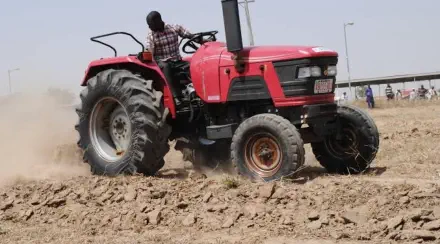Mechanization: A Lever for
Agricultural Transformation in
Africa
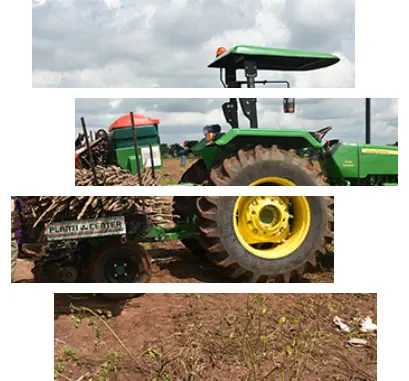

Service Offerings
Smallholder Financing Accessible Mechanization Post Harvest Solutions Commodity Trading Climate Smart Agriculture InclusionHead Office
Tel: +234 815 728 9590 Email: info@supertechfoods.com Web: www.supertechfoods.com Address: Plot 155, Okotie Eboh Street, Utako District, FCT Abuja.
© Copyright 2024
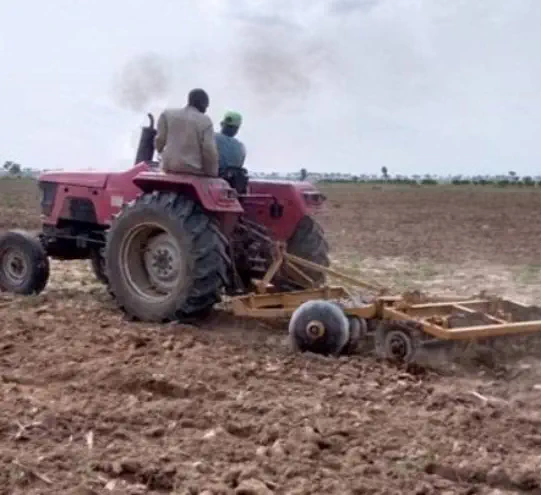
The Current State and Necessity for
Mechanization
In Africa, the landscape of agricultural mechanization is evolving, driven by the pressing need to boost productivity and respond to demographic shifts such as rapid urbanization. The current state of mechanization varies significantly across different regions but is generally low compared to other parts of the world. However, there's a growing recognition of its potential to transform agriculture by increasing efficiency and reducing the physical toll of farming. The adoption of mechanized tools allows for timelier and more effective farming operations, which is critical in regions where agriculture forms the backbone of the economy. Studies and reports, including those by the International Food Policy Research Institute (IFPRI), highlight that mechanization helps enhance productivity by facilitating more efficient planting, harvesting, and processing, which in turn can contribute to higher incomes and improved food security in rural communities (IFPRI)Policy and Strategic Support for Mechanization
To realize the potential of agricultural mechanization, supportive policies and strategic planning are essential. Governments across Africa, along with international agencies, are increasingly focusing on creating conducive environments for mechanization. This includes formulating policies that encourage the use of mechanization through subsidies or financial support, facilitating access to mechanization through shared service centers, and investing in infrastructure that supports mechanized operations. The African Union's initiatives, through the Comprehensive Africa Agriculture Development Programme (CAADP), play a crucial role in this regard by advocating for increased investment in agriculture, which includes mechanization as a key component of modernizing agriculture. Moreover, the FAO provides a framework for Sustainable Agricultural Mechanization in Africa (SAMA), which guides countries in developing strategies that align mechanization with their specific agricultural and ecological contexts. This framework emphasizes a non-prescriptive approach, recognizing the diverse needs across different regions and promoting mechanization in a way that respects sustainable practices (FAOHome).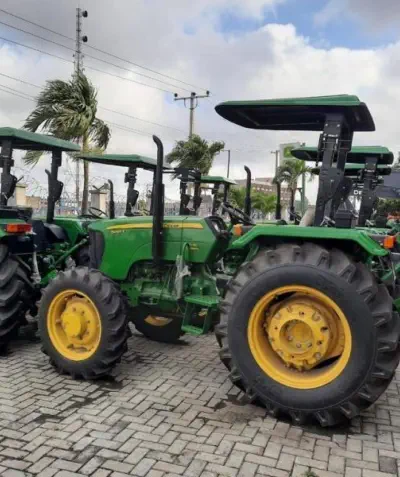
SuperTech Foods (STF) and Mechanization
SuperTech Foods (STF) plays a pivotal role in transforming agricultural practices in Africa through the integration of innovative AgriTech solutions. With a strong focus on sustainability and efficiency, STF is committed to enhancing agricultural productivity and ensuring economic growth within the sector. The company's involvement spans several key areas: 1. Accessible Mechanization: STF provides financial solutions and training to enhance the economic resilience of smallholder farmers. By facilitating access to mechanization, STF helps improve productivity and reduce the labor-intensive nature of traditional farming methods. This initiative not only boosts crop yields but also supports sustainable farming practices. 2. Climate-Smart Agriculture: STF promotes climate-smart agriculture by introducing resilient crop varieties and renewable energy solutions. These initiatives help mitigate the impacts of climate change on agriculture, ensuring that farming practices are both environmentally sustainable and economically viable. 3. Gender Equality and Empowerment: A significant portion of STF's beneficiaries are women, demonstrating the company's commitment to supporting gender equality in agriculture. By empowering women farmers and providing them with the tools and knowledge necessary for mechanized agriculture, STF contributes to more inclusive growth within the agricultural sector. 4. Market Access and Inclusion: Beyond mechanization, STF works to connect farmers to lucrative markets, thereby enhancing their profitability and sustainability. This includes providing training on the use of mechanized tools and facilitating better market access through strategic partnerships. The journey towards fully mechanized agriculture in Africa is marked by both challenges and opportunities. While the initial cost and accessibility of technology pose significant barriers, the potential for mechanization to enhance productivity, profitability, and sustainability in agriculture is immense. Initiatives like those of SuperTech Foods highlight the transformative impact of integrating AgriTech solutions with traditional farming practices. By focusing on sustainability, inclusivity, and economic resilience, mechanization can serve as a critical lever for agricultural transformation in Africa, ultimately leading to improved livelihoods and food security across the continent.
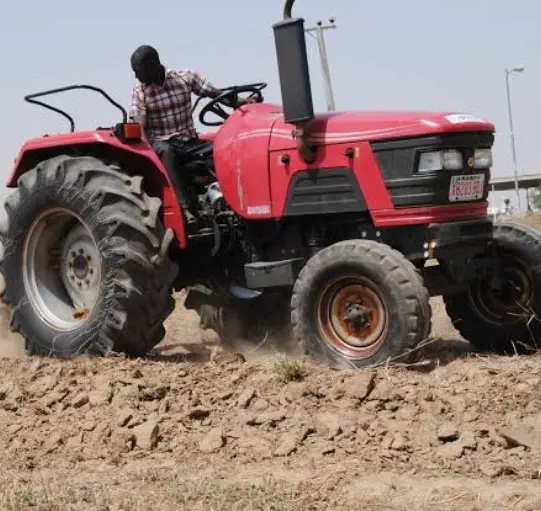
Challenges and Opportunities
The path towards widespread agricultural mechanization in Africa is fraught with both significant challenges and promising opportunities. One of the main hurdles is the accessibility of suitable technology and machinery that can operate effectively within the varied African agricultural landscapes. High initial costs and inadequate access to financing also pose substantial barriers to the adoption of mechanization, particularly for smallholder farmers. However, the potential benefits of mechanization are substantial. It can lead to increased agricultural productivity, reduced labor costs, and improved crop yields. Mechanization also opens up opportunities for innovation in the sector, such as the development of locally adapted machinery, which can spur local industries. Furthermore, as emphasized during the FAO Global Conference on Sustainable Agricultural Mechanization, there is a growing need for policies that support sustainable practices and encourage private sector involvement and investment in the development of new technologies. These actions are crucial for creating a resilient agricultural system that can adapt to challenges such as climate change and population growth (FAOHome). These initiatives underscore the importance of a strategic and coordinated approach that includes governmental support, private sector engagement, and international collaboration to overcome the challenges and capitalize on the opportunities presented by agricultural
Mechanization: A
Lever for
Agricultural
Transformation in
Africa
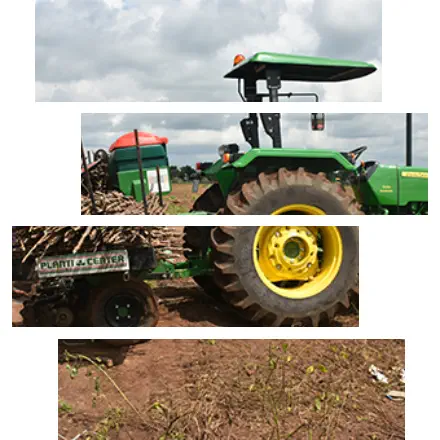

Service Offerings
Smallholder Financing Accessible Mechanization Post Harvest Solutions Commodity Trading Climate Smart Agriculture InclusionHead Office
Tel: +234 815 728 9590 Email: info@supertechfoods.com Web: www.supertechfoods.com Address: Plot 155, Okotie Eboh Street, Utako District, FCT Abuja.
© Copyright 2024
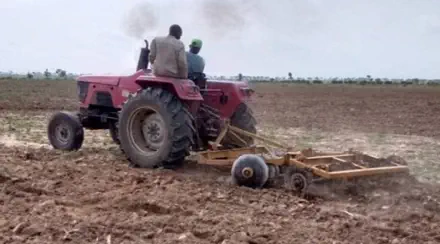
The Current State and
Necessity for
Mechanization
In Africa, the landscape of agricultural mechanization is evolving, driven by the pressing need to boost productivity and respond to demographic shifts such as rapid urbanization. The current state of mechanization varies significantly across different regions but is generally low compared to other parts of the world. However, there's a growing recognition of its potential to transform agriculture by increasing efficiency and reducing the physical toll of farming. The adoption of mechanized tools allows for timelier and more effective farming operations, which is critical in regions where agriculture forms the backbone of the economy. Studies and reports, including those by the International Food Policy Research Institute (IFPRI), highlight that mechanization helps enhance productivity by facilitating more efficient planting, harvesting, and processing, which in turn can contribute to higher incomes and improved food security in rural communities (IFPRI)Policy and Strategic
Support for Mechanization
To realize the potential of agricultural mechanization, supportive policies and strategic planning are essential. Governments across Africa, along with international agencies, are increasingly focusing on creating conducive environments for mechanization. This includes formulating policies that encourage the use of mechanization through subsidies or financial support, facilitating access to mechanization through shared service centers, and investing in infrastructure that supports mechanized operations. The African Union's initiatives, through the Comprehensive Africa Agriculture Development Programme (CAADP), play a crucial role in this regard by advocating for increased investment in agriculture, which includes mechanization as a key component of modernizing agriculture. Moreover, the FAO provides a framework for Sustainable Agricultural Mechanization in Africa (SAMA), which guides countries in developing strategies that align mechanization with their specific agricultural and ecological contexts. This framework emphasizes a non-prescriptive approach, recognizing the diverse needs across different regions and promoting mechanization in a way that respects sustainable practices (FAOHome).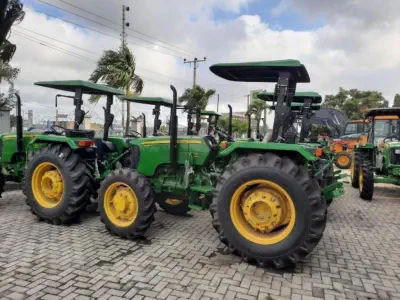
SuperTech Foods (STF) and
Mechanization
SuperTech Foods (STF) plays a pivotal role in transforming agricultural practices in Africa through the integration of innovative AgriTech solutions. With a strong focus on sustainability and efficiency, STF is committed to enhancing agricultural productivity and ensuring economic growth within the sector. The company's involvement spans several key areas: 1. Accessible Mechanization: STF provides financial solutions and training to enhance the economic resilience of smallholder farmers. By facilitating access to mechanization, STF helps improve productivity and reduce the labor-intensive nature of traditional farming methods. This initiative not only boosts crop yields but also supports sustainable farming practices. 2. Climate-Smart Agriculture: STF promotes climate-smart agriculture by introducing resilient crop varieties and renewable energy solutions. These initiatives help mitigate the impacts of climate change on agriculture, ensuring that farming practices are both environmentally sustainable and economically viable. 3. Gender Equality and Empowerment: A significant portion of STF's beneficiaries are women, demonstrating the company's commitment to supporting gender equality in agriculture. By empowering women farmers and providing them with the tools and knowledge necessary for mechanized agriculture, STF contributes to more inclusive growth within the agricultural sector. 4. Market Access and Inclusion: Beyond mechanization, STF works to connect farmers to lucrative markets, thereby enhancing their profitability and sustainability. This includes providing training on the use of mechanized tools and facilitating better market access through strategic partnerships. The journey towards fully mechanized agriculture in Africa is marked by both challenges and opportunities. While the initial cost and accessibility of technology pose significant barriers, the potential for mechanization to enhance productivity, profitability, and sustainability in agriculture is immense. Initiatives like those of SuperTech Foods highlight the transformative impact of integrating AgriTech solutions with traditional farming practices. By focusing on sustainability, inclusivity, and economic resilience, mechanization can serve as a critical lever for agricultural transformation in Africa, ultimately leading to improved livelihoods and food security across the continent.